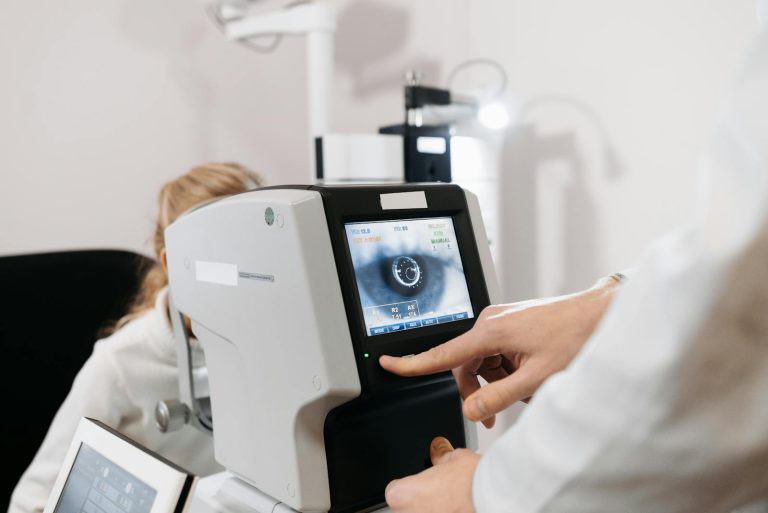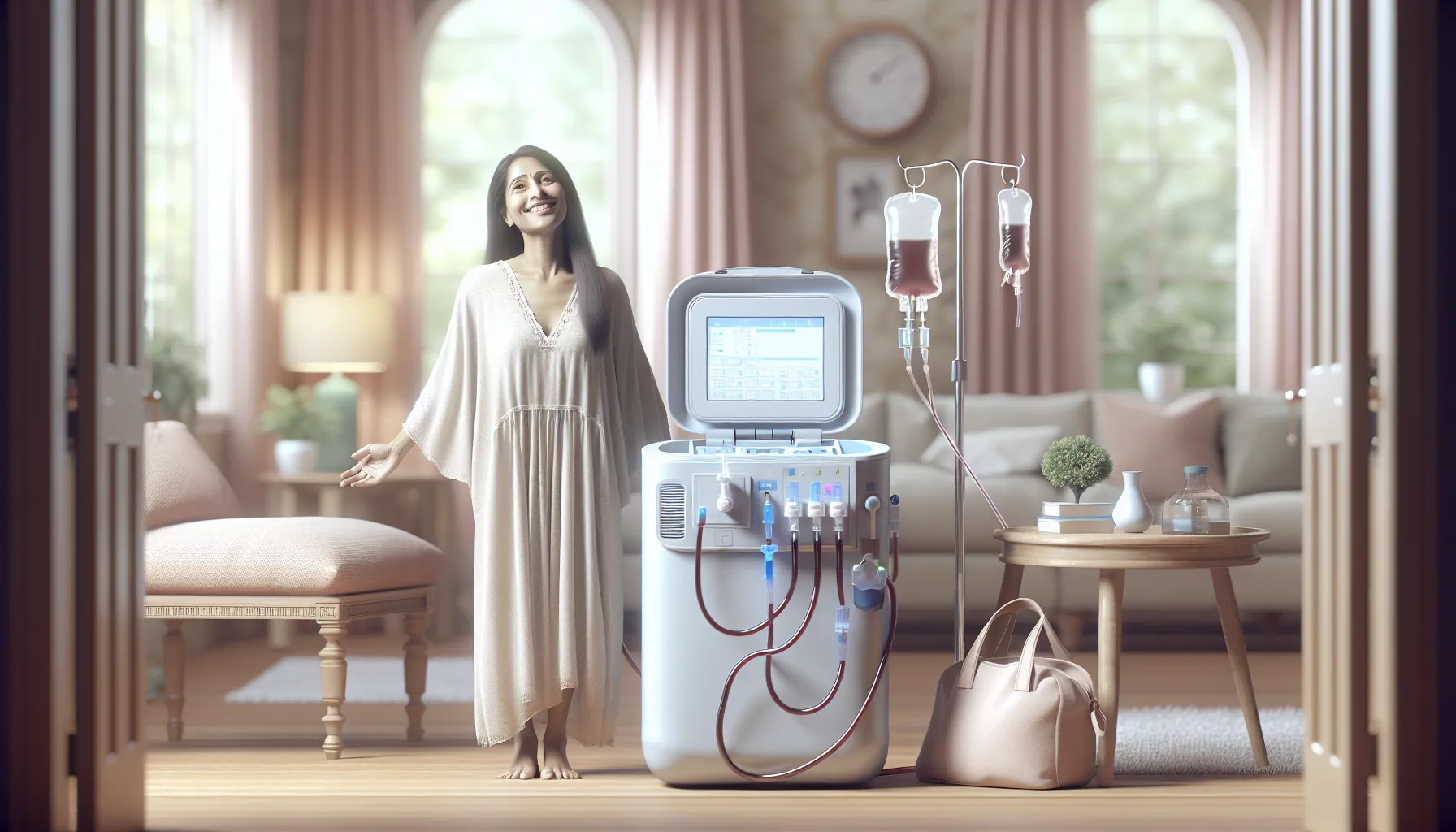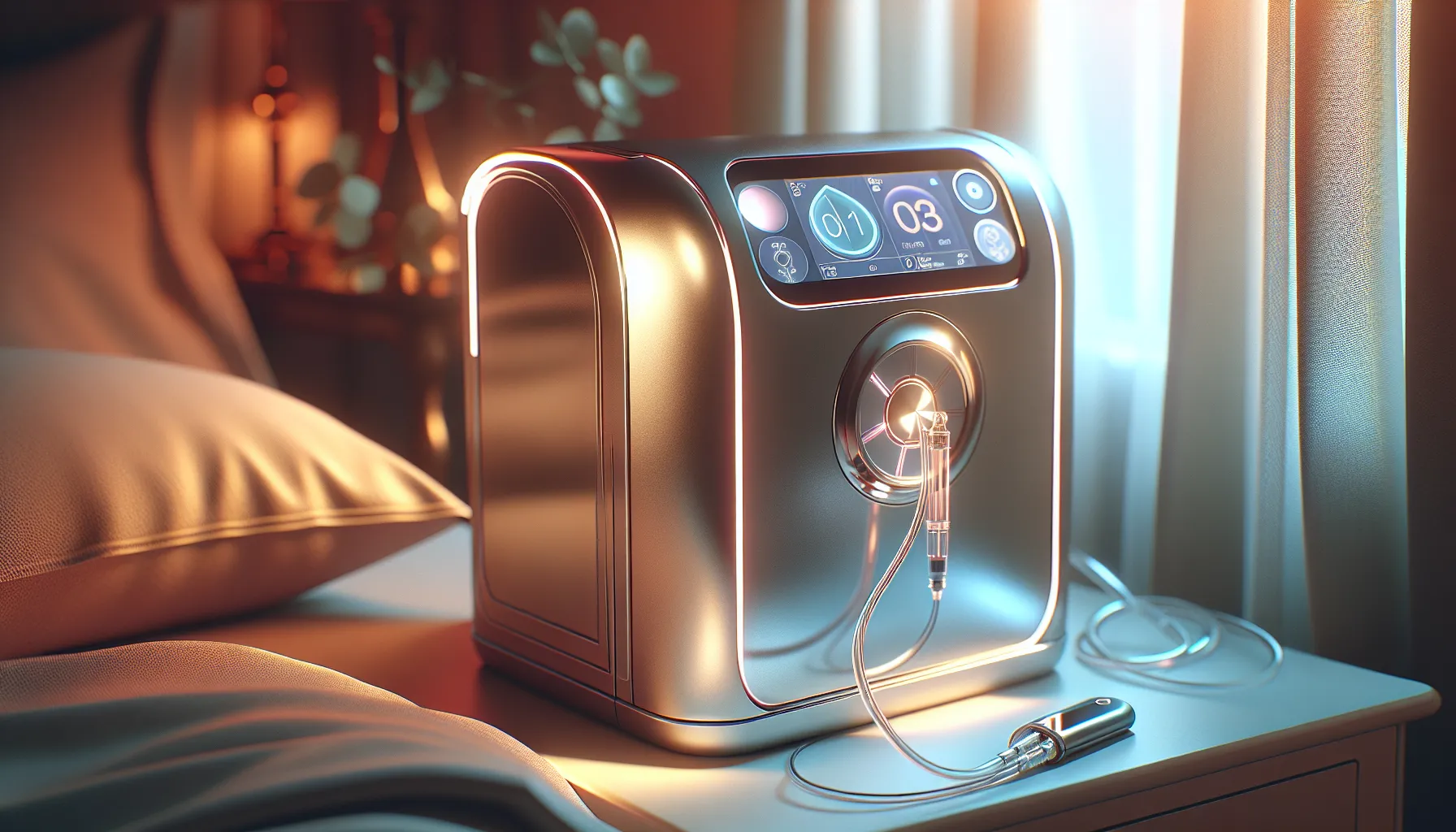
A growing marvel in medical technology, portable dialysis machines are revolutionizing how kidney disease patients receive care, offering a glimpse into the future where healthcare is more accessible and flexible. These compact devices function as life-saving equipment, designed to replicate the kidney’s ability to filter waste and excess fluids from the blood.
At the core of these machines is a process called dialysis, which operates on similar principles as traditional dialysis but miniaturized for convenience. The machine connects to the patient through a set of tubes, allowing blood to flow into a dialyzer or a filter. Inside the dialyzer, a semi-permeable membrane separates harmful waste products and excess ions from the blood via a specialized dialysis solution known as dialysate.
The arrangement ensures that unwanted substances diffuse out of the bloodstream and into the dialysate, relying on the principles of osmosis and diffusion. This filtration helps maintain electrolyte balance, crucial for the patient’s overall health. Despite their size, these machines manage to sustain required blood flow rates and ensure effective cleansing, drawing on portable power sources and advanced material technologies to maintain efficiency without being tethered to hospital-grade setups.
In terms of usability, these devices are akin to a modern marvel of engineering; they are designed with user-friendly interfaces and customizable settings, enabling patients to undergo dialysis in the comfort of their own home. With sleek control panels and intuitive systems, they provide
Benefits of portable dialysis for patients

an unprecedented level of independence and flexibility, setting patients free from the confines of traditional treatment schedules. One of the most significant advantages is the improvement in quality of life. Patients no longer need to adhere to the rigid timetables of clinic-based treatments, allowing for greater autonomy and the freedom to travel. This flexibility can lead to reduced anxiety and stress, as individuals can plan their medical routines around their lives rather than the other way around.
Portable dialysis machines also foster enhanced health outcomes. Frequent, short sessions typically performed at home can mimic the natural function of healthy kidneys more closely than conventional, thrice-weekly in-center sessions, helping to maintain a more stable physiological environment. This consistency aids in the management of comorbid conditions such as hypertension and cardiac issues, potentially decreasing the number of hospital admissions and associated healthcare costs.
Beyond the physical benefits, these devices offer profound social and emotional rewards. For many, the ability to perform treatment at home reunites them with social activities and family engagements otherwise disrupted by clinic visits. This reconnection not only boosts emotional well-being but can also have tangible effects on overall health, encouraging a more active and involved lifestyle. Furthermore, interacting with the device and becoming proficient in managing personal care boosts patients’ confidence and self-efficacy.
By decentralizing dialysis treatment, portable machines could significantly alleviate the burden on healthcare facilities, creating a more sustainable model for treating chronic kidney disease in an aging population. Medical
